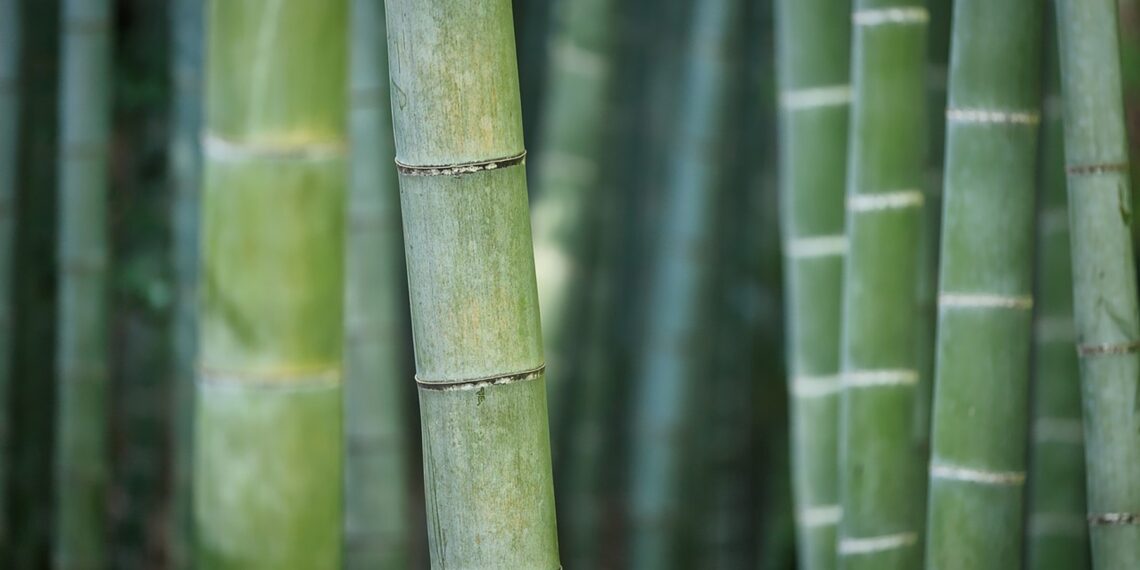Agartala: The Tripura government has launched an ambitious five-year plan to expand bamboo production for industrial use by nearly 100 times, aiming to cover 45,000 hectares of land.
This initiative is set to transform the state’s bamboo sector and further cement Tripura’s position as a leading supplier of bamboo products in India.
Tripura currently supplies around 70% of the country’s bamboo requirements for agarbatti (incense stick) production and the state government is eager to attract more industries in this sector.
The northeastern state is rich in bamboo resources, producing 21 species, and it is estimated to have around 4.2 lakh hectares of bamboo-bearing land, according to the Forest Survey of India’s 2023 report.
However, only a small portion of this land is suitable for industrial bamboo production.
Currently, the state produces bamboo on just 461.32 hectares for commercial purposes, but with the new plan, this will increase to 45,000 hectares by 2025-26, adding 9,000 hectares each year.
Subhash Chandra Das, Additional Mission Director of the Tripura Bamboo Mission (TBM), shared details of the plan with PTI, emphasising that the goal is to create a smooth supply chain for bamboo, enhancing its accessibility for industries.
“Transportation of bamboo from remote areas, especially from dense forests or hilly regions, has been a major challenge. By cultivating bamboo on private land in more accessible locations, we will eliminate this issue and make bamboo easily available to factories,” said Das.
Under the Tripura Bamboo Plantation Development Scheme, the state aims to address these challenges by promoting high-density bamboo plantation, with a focus on private land cultivation.
The project will be implemented with support from various government agencies, including the MGNREGA, Tripura Tribal Areas Autonomous District Council, and Tribal Welfare Department, among others.
These agencies will work together to meet annual production targets over the next five years.
The state’s bamboo sector has been growing rapidly. Currently, Tripura requires about 2 lakh metric tons (MT) of bamboo per year, but demand is expected to double to 4 lakh MT annually within the next two to three years.
This is driven by the growth of existing bamboo-based industries and the emergence of new ones, especially in West Tripura and Sepahijala districts.
Two major private companies operating at the Bodhjungnagar bamboo park in West Tripura already produce incense sticks and bamboo tiles, with smaller factories producing incense sticks for markets in Bangalore, Andhra Pradesh, Guwahati, and Kolkata.
In addition to the industrial use, bamboo is increasingly being utilized in construction, scaffolding, and handicrafts.
A new Integrated Bamboo Park is being developed in Unakoti district, which will require a steady supply of high-quality bamboo in the coming years.
ALSO READ: NFR completes statutory inspection for Agartala-Sabroom railway electrification
The state government is also working to ensure that bamboo plantations provide long-term sustainable income for farmers.
The durability and return of bamboo plantations are considered more lucrative than other crops like rubber, making it a promising cash crop for the region.
The Tripura Bamboo Mission (TBM), established in 2007 under the state’s Department of Industries & Commerce, aims to position the bamboo sector as a key livelihood provider, boosting production, commercial infrastructure, and the overall economy of the state.
With this bold expansion plan, Tripura is set to become a major player in the bamboo industry, driving both local development and environmental sustainability.















